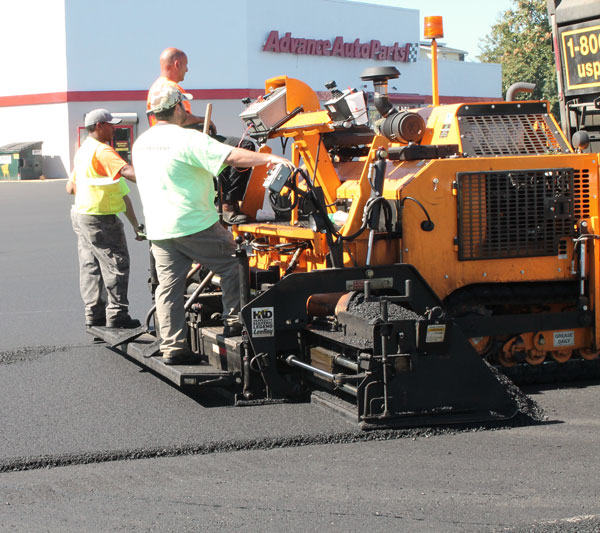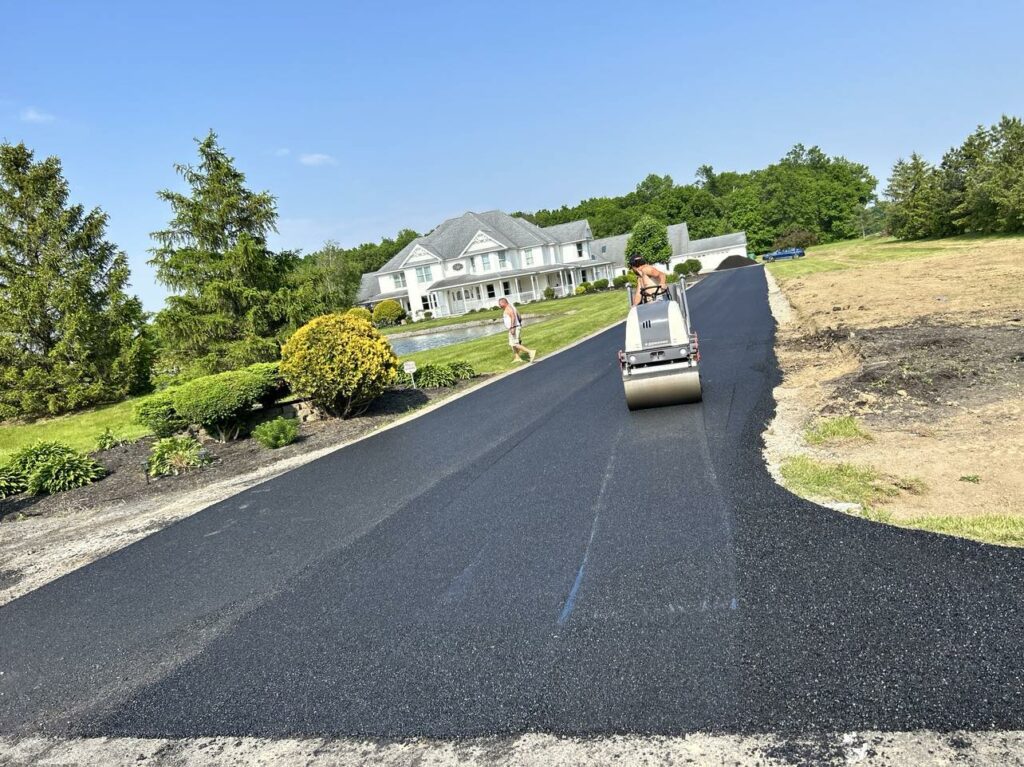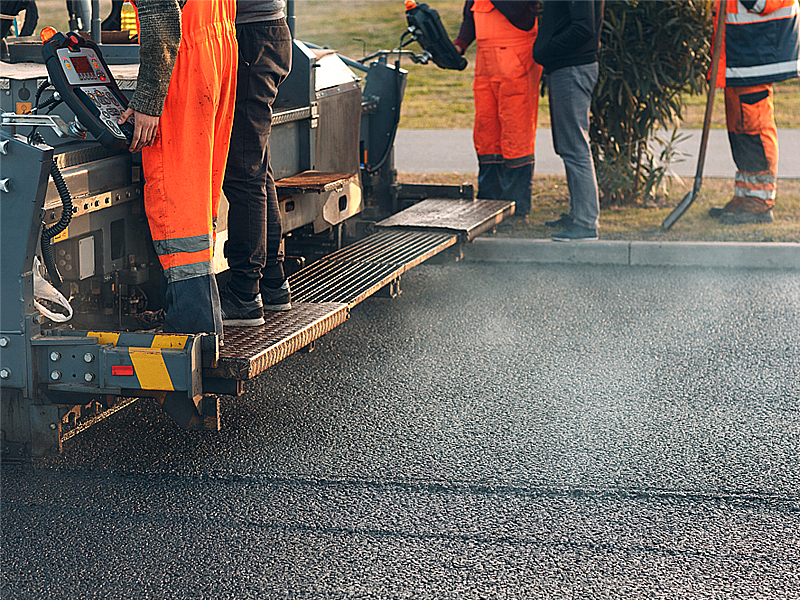Comprehensive Paving for Residential Needs
Comprehensive Paving for Residential Needs
Blog Article
A Summary of the Sorts Of Asphalt Paving Available With Professional Paving Services
In the realm of building and infrastructure, comprehending the numerous sorts of asphalt paving is crucial for making informed decisions. Specialist paving solutions give a variety of alternatives, including Hot Mix Asphalt, recognized for its resilience, and environmentally friendly choices like Warm Mix Asphalt. Furthermore, options such as Cold Mix Asphalt and Permeable Asphalt provide to specific needs, while Recycled Asphalt Pavement emphasizes sustainability. Each type offers unique benefits, but the selection inevitably depends upon task needs and problems. Analyzing these choices discloses even more regarding their corresponding applications and advantages, prompting additional exploration into their viability for your upcoming jobs.
Hot Mix Asphalt
What makes warm mix asphalt a recommended selection for many paving jobs? Hot mix asphalt (HMA) is renowned for its durability, versatility, and cost-effectiveness, making it an excellent alternative for a vast array of applications, from freeways to property driveways.
(learn about it)The high-temperature application of HMA not just helps with much better bonding but additionally boosts the material's load-bearing ability, enabling it to withstand the tensions enforced by car web traffic. Moreover, its fast treating time minimizes disruption throughout building and construction, enabling streets to reopen earlier.
Ecological considerations are also resolved with HMA, as it can be reused and recycled in numerous tasks, contributing to lasting practices in paving. In addition, developments in technology have improved its efficiency features, making certain durability and reduced upkeep demands. These features strengthen hot mix asphalt as the gold requirement in the paving industry, offering a trusted service for both heavy-duty and light-duty surfaces.
Warm Mix Asphalt
Warm mix asphalt (WMA) is increasingly used in paving jobs because of its capacity to be created and laid at lower temperatures compared to standard hot mix asphalt. This modern technology permits the production of asphalt at temperatures ranging from 100 ° F to 250 ° F less than conventional methods, which dramatically decreases energy consumption and greenhouse gas emissions throughout manufacturing.

Among the primary advantages of WMA is its extended workability duration, which enables professionals to deal with the material for a longer duration before it establishes. This particular is specifically advantageous in cooler weather condition problems, where typical hot mix asphalt might cool down also quickly to be laid effectively. WMA can be easily blended with recycled products, improving sustainability initiatives within the asphalt paving market.
In addition, the reduced temperature application of WMA lessens the threat of thermal segregation, resulting in an extra uniform and resilient pavement surface. Consequently, WMA not just adds to boosted efficiency characteristics however also reduces the general environmental influence of asphalt paving tasks. This mix of advantages makes warm mix asphalt a progressively prominent selection amongst leading professionals and clients alike.
Cold Mix Asphalt
Cold mix asphalt is a functional leading solution that is especially reliable for patching and repairing surface areas in different weather condition conditions. Unlike hot mix asphalt, which calls for heating, chilly mix asphalt can be applied straight from its container, making it a perfect choice for fast fixings and upkeep jobs. This kind of asphalt is made up of a mixture of aggregate and emulsified asphalt, enabling it to remain workable at reduced temperatures.
(see details)One of one of the most substantial benefits of cool mix asphalt is its simplicity of application. It can be utilized in both household and business projects, providing a functional option for fixing pits, fractures, and various other surface blemishes. Additionally, cool mix asphalt appropriates for use in damp problems, allowing fixings to be made throughout inclement weather.
While it is normally not used for rush hour surface areas because of its reduced toughness compared to warm mix asphalt, chilly mix is an excellent selection for temporary remedies or areas with lighter website traffic. Its flexibility and versatility make it an important choice for maintaining asphalt surfaces, ensuring longevity and efficiency also under challenging conditions.
Absorptive Asphalt

Absorptive asphalt provides an ingenious remedy for taking care of stormwater drainage, dealing with an important ecological issue often connected with conventional asphalt paving. This kind of asphalt is developed with a permeable framework, enabling rain to infiltrate through the surface and into a sub-base, where it can be gradually taken in right into the ground or taken care of in a controlled way.
The benefits of permeable asphalt expand past water management; they additionally add to decreasing metropolitan heat island results and enhancing groundwater recharge - paving. By decreasing surface overflow, absorptive asphalt helps reduce the danger of flooding and disintegration, which can be specifically useful in city areas susceptible to hefty rains
Installment of absorptive asphalt requires cautious consideration of site conditions and appropriate layout to ensure optimal performance. It is necessary to produce a well-drained sub-base and to preserve the permeability with routine cleansing to avoid blocking from particles and sediment.
Recycled Asphalt Pavement
Recycled asphalt sidewalk (RAP) is an increasingly preferred option in the paving market, providing both financial and environmental advantages. By recycling asphalt millings from old roads, RAP lowers the requirement for brand-new products, thus reducing expenses and reducing the ecological effect related to asphalt manufacturing.
The process of creating RAP involves milling existing asphalt surfaces and processing the product to remove impurities. This recovered product is then combined with new asphalt binder and accumulations to develop a high-grade paving mix. Making use of RAP can dramatically decrease the quantity of waste sent out to landfills, adding to an extra lasting method why not try here to roadway construction.
RAP is especially useful for jobs where budget restrictions are a problem, as it can lower material expenses by approximately 30%. Additionally, the performance of RAP is similar to that of virgin asphalt, giving durability and longevity. It is appropriate for numerous applications, consisting of residential driveways, industrial car park, and road resurfacing.
As communities and service providers progressively focus on sustainable practices, recycled asphalt pavement stands out as a sensible solution that meets both economic needs and environmental duties, making it an engaging alternative for modern-day paving tasks.

Conclusion
In summary, specialist paving services offer a diverse series of asphalt paving alternatives tailored to specific building and construction demands. Each type, including Warm Mix Asphalt, Warm Mix Asphalt, Cold Mix Asphalt, Permeable Asphalt, and Recycled Asphalt Sidewalk, provides distinct advantages that accommodate both property and commercial requirements - paving. The option of the ideal asphalt type not just enhances longevity and performance but additionally addresses environmental issues and sustainability, making sure efficient and reliable paving options
Report this page